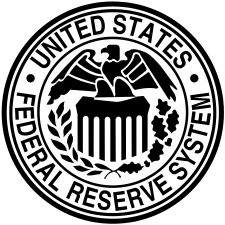Survey of Household Economic Decisionmaking (SHED)

What is it measuring?
The Federal Reserve's Survey of Household Economics and Decisionmaking (SHED) examines the economic well-being of American households, asking a range of questions about income, work, and spending.
From 2016 to 2021, the survey included a measure of participation in informal income-earning activities, or gig work. In 2022 and 2023, the survey did not ask about gig work directly, but did ask about irregular schedules and autonomy at work. The 2024 survey again asked about gig activities, defined as "activities that people did to earn money but that many people may think of differently than a traditional job." Examples given are selling items such as clothing or handmade crafts; renting property or a vehicle; and doing self-contained short-term tasks such as hanging pictures for someone, delivering takeout, or giving rides to people using an app.
What does it tell us?
In 2024, 20 percent of adults has participated in gig work in the past month. This includes 10 percent who sold things, 2 percent who offered short-term rentals, and 9 percent who performed short-term tasks. Four percent used apps to arrange tasks.
Only 21 percent of people who did gig work said it was their main job. An overwhelming 96 percent typically spent less than 35 hours per week on gig work.
In 2021, 16 percent of adults had participated in gig work in the past month.
How is it collected?
The SHED, conducted annually since 2013, uses an online consumer research panel recruited based on address-based sampling. In 2024, 12,393 completed the survey, with a cumulative response rate of 4 percent.
Who collects it?
The Federal Reserve, the central bank of the U.S., which maintains an active economic research agenda.
Considerations
The questions about gig and informal work on the SHED have been somewhat inconsistent, but it remains a very helpful measure. It avoids jargon and confusing terms for respondents, often using examples, and is likely to catch types of work not reflected in other surveys. Many of the changes over time are rooted in authors' continued attempts to better understand how people think about gig work and respond to questions.
Some types of work typically considered non-standard, such as temp agency or subcontracted work, would not be counted.
How to access this data?
SHED data are publicly available from the Federal Reserve Board.
Reports
Economic Well-Being of U.S. Households in 2024; 2025; ; Board of Governors of the Federal Reserve System;
Report on the Economic Well-Being of U.S. Households in 2022; 2023; ; Board of Governors of the Federal Reserve System;
Report on the Economic Well-Being of U.S. Households in 2021; 2022; ; Board of Governors of the Federal Reserve System;
Report on the Economic Well-Being of U.S. Households in 2020; 2021; ; Board of Governors of the Federal Reserve System;
Report on the Economic Well-Being of U.S. Households in 2019; 2020; ; Board of Governors of the Federal Reserve System;
Report on the Economic Well-Being of U.S. Households in 2018; 2019; ; Board of Governors of the Federal Reserve System;
Report on the Economic Well-Being of U.S. Households in 2017; 2018; ; Board of Governors of the Federal Reserve System;
Exploring Online and Offline Informal Work: Findings from the Enterprising and Informal Work Activities (EIWA) Survey; 2016; ; Board of Governors of the Federal Reserve System;
